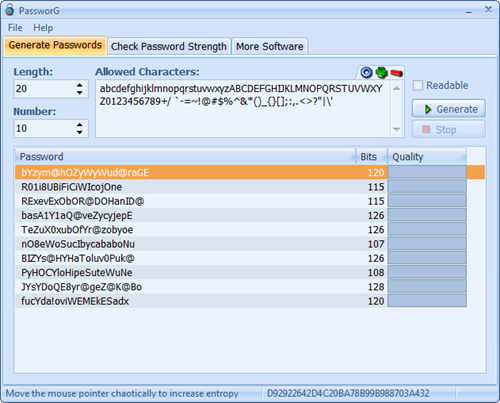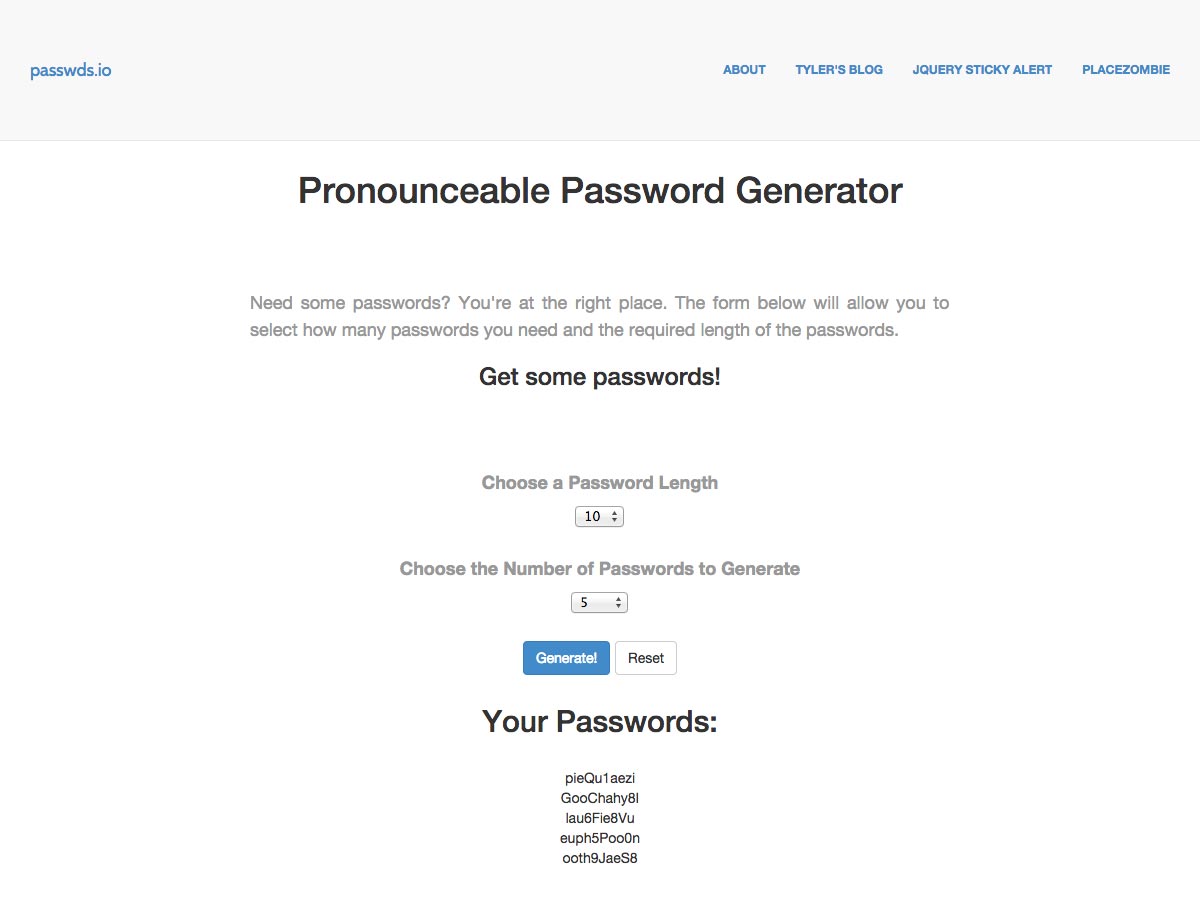
Rather than go over old ground involving muscle memory, encrypted USB sticks (which need yet another password) or a biometric device (JEMpass) and even dice with multiple patterns rolled randomly into a locked box (DiceKeys), let’s approach this from the three random words angle.
#EASY PASSWORD GENERATOR WORDS PASSWORD#
Of course, the perennial problem of master password creation rears its very ugly head once more. That way you can create truly random and complex and extremely long passwords, or the application can, and have a unique one for every login.

Skip the whole three words thing, don’t mention it at all, go straight for the “use a password manager dammit” jugular. What I am suggesting is that, rather than getting people to use three supposedly random words, it would be far better to advise them to use some form of secure password manager instead. This is true, and I’m not suggesting that Password, or or even is a super-duper credential to be using. Their argument generally being along the same lines as the NCSC, that adopting a three random words approach will create stronger passwords than those we often see being used and reused today. Look, I perfectly understand plenty of security professionals disagree with me here.

“Phrases like young man which come up often in speech are proportionately more likely to be chosen than rare phrases like young table” the research concluded. Its evidence on multi-word passphrases was pretty damning: “By our metrics, even five-word phrases would be highly insecure against offline attacks,” the researchers found, because people naturally sway towards speech rather than randomness.

There’s a really interesting piece of research from the University of Cambridge Computer Laboratory, admittedly now almost a decade old but still relevant, that explains this very well. Humans just don’t do randomness well that’s why there are computer-me-bobs for creating truly random stuff, and more on that later.


 0 kommentar(er)
0 kommentar(er)
